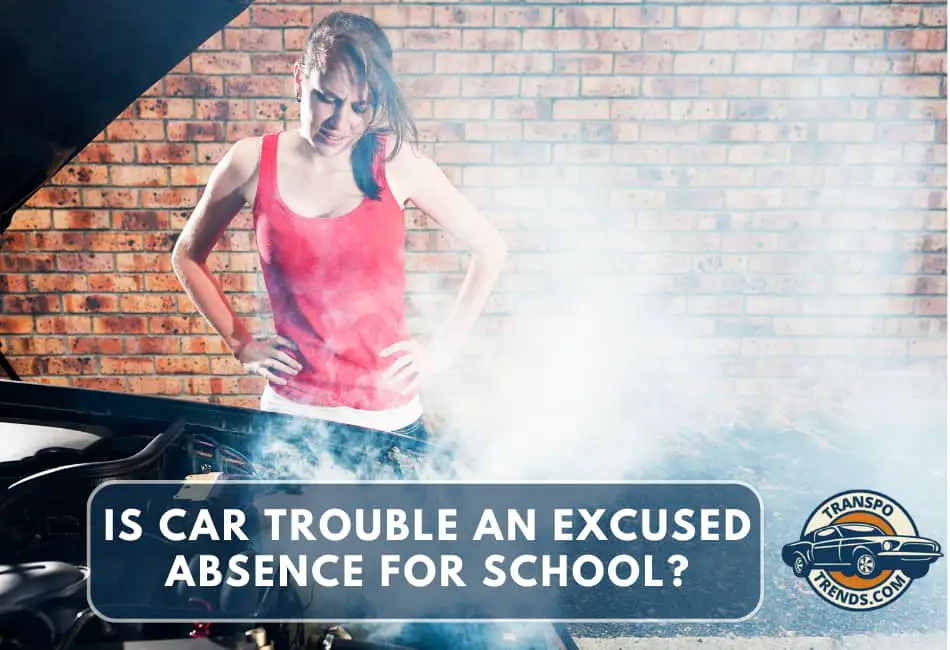Car trouble and school attendance may seem to be two disconnected phenomena, but their intersection can cause a significant disruption in a student’s life.
The importance of punctual and consistent school attendance cannot be overstated – it is an integral part of a student’s academic growth and success.
Yet, when the family car breaks down or faces unexpected issues, it could mean a student’s unplanned absence from school.
Understanding the School’s Absence Policy
Understanding your school’s attendance policy is crucial to dealing with unplanned absences. Here are some key points to consider:
- Know the Definition of Excused Absence: Schools typically differentiate between excused and unexcused absences. Excused absences may include illness, family emergencies, or events like funerals. Check if car trouble is considered a valid reason for an excused absence.
- Find out About Makeup Work: Some schools allow students to make up for missed assignments or tests in case of an excused absence. Understanding these regulations can help manage academic progress in cases of unexpected car troubles.
- Notify the School ASAP: Most schools require you to notify them about the absence immediately. Ensure you know the appropriate way to do this – via a phone call, email, or specific form.
- Understand the Consequences: Frequent absences can lead to academic penalties, even if they are justified. Understanding these penalties and how they can affect a student’s academic record is essential.
- Explore Alternative Transportation Options: If car trouble is a recurring issue, discuss with the school officials about potential alternatives they might suggest, such as school buses or carpools.
Common Reasons for Car Trouble
Car trouble can arise from a multitude of issues, most of which fall under a few common categories:
- Mechanical Problems:
These are issues with the car’s physical components, such as the engine, brakes, or transmission. For instance, a faulty engine can cause the car to stall, or worn-out brake pads can compromise the car’s ability to stop safely. Regular maintenance and prompt repair of these parts can prevent most mechanical problems.
- Electrical Issues:
Modern cars rely heavily on electrical components, from the ignition system to the car’s computer. Faulty wiring, a drained battery, or a malfunctioning alternator can lead to electrical problems, often rendering the car non-operational until fixed.
- Fuel System Problems:
Issues in the fuel system, like a clogged fuel filter or a malfunctioning fuel pump, can interrupt the fuel flow to the engine, affecting the car’s performance or causing it to break down.
- Tire Issues:
Incorrect tire pressure, punctures, or worn-out tires can make driving unsafe and lead to more significant problems like a flat tire or even a blowout.
- Ignition System Failures:
If the spark plugs or ignition wires are worn out or damaged, the car might face trouble starting. This is because these components are essential for igniting the fuel-air mixture in the engine.
Understanding these common reasons for car trouble can help you recognize symptoms early and take corrective measures, minimizing the chances of unplanned absences due to vehicle breakdowns.
Communication with the School
Experiencing car trouble when it’s time to drop off or pick up your child from school can be quite stressful. It is essential to keep the lines of communication open with the school during such situations.
Promptly inform the school about the vehicle breakdown to ensure they know the situation and can make necessary arrangements.
You can call the school’s main office or email the appropriate personnel, such as the child’s teacher or the school principal.
In your communication, provide details about the situation, the estimated time needed for problem resolution, and any alternative arrangements you make for your child’s commute.
For instance, you may have arranged for a family member to take your child to school, or perhaps your child will use school bus services or public transportation.
Remember to follow up with the school once your car is operational again. This will help them return to the usual arrangements and routines.
Communication is crucial to ensure minimal disruption to your child’s education and the school’s operations during such unexpected events.
Documenting Car Trouble
When you experience car trouble, keeping a detailed record is important. This can greatly assist in diagnosing the problem and can also be valuable if you need to make a warranty or insurance claim. Here’s how to go about it:
- Describe the Problem: Begin by clearly describing the problem. Be sure to include any unusual noises, smells, or sensations, as well as any changes in the car’s performance or operation.
- Document the Circumstances: Note the conditions when the problem occurs. This could include factors like the weather, the car’s engine temperature, the time of day, or whether you were driving uphill, downhill, or on a flat road.
- Record Frequency: Keep track of how often the issue occurs. Is it constant, intermittent, or only under certain conditions?
- Take Photos or Videos: If the issue is visible (like a leaking fluid), use your phone to take photos or videos. These can provide vital clues to a mechanic.
- Service History: Include a record of your car’s service history. Provide details of any recent repairs or maintenance, as these could be related to the problem.
- Save Receipts: Keep receipts of all repairs and maintenance for your records. These can be helpful for warranty claims or if you decide to sell your car.
- Mechanic’s Report: After taking your car to a mechanic, keep a copy of the mechanic’s report detailing the problem, the diagnosis, and the repair work done.
Remember, these records are helpful for repair and if you ever have to prove that you’ve maintained your vehicle appropriately.
Alternative Transportation Options
In instances where your car is unavailable due to repairs or maintenance, it’s essential to be aware of alternative transportation options that you can rely on.
Public Transportation:
In many cities, public transportation systems, including buses, trams, and trains, offer an affordable and eco-friendly alternative. The availability and frequency of these services may vary depending on your location.
Rideshare Services:
Companies such as Uber and Lyft provide convenient and often time-saving transportation options. These services allow you to book a ride using an app on your smartphone, and you can choose from a range of vehicle types and price points.
Bicycle or Walking:
For shorter distances, consider healthier options like walking or cycling. These modes of transport are not only beneficial for your well-being but also have a positive impact on the environment.
Car Rental or Car Share Services:
Car rental companies can provide a suitable vehicle if you need a vehicle for a longer period or for a specific task like moving house.
Alternatively, car share services like Zipcar offer a more flexible arrangement where you can rent a car for just a few hours at a time.
Remember, the choice of alternative transport should depend on your personal needs, budget, and the distance to your destination.
Conclusion
In conclusion, regular school attendance is crucial, but unavoidable circumstances like car trouble can pose a challenge.
Open communication between students, parents, and schools and proof of car trouble can help manage these situations.
At the end of the day, the focus should be on ensuring the student’s education is not compromised while addressing car troubles in a responsible manner.

